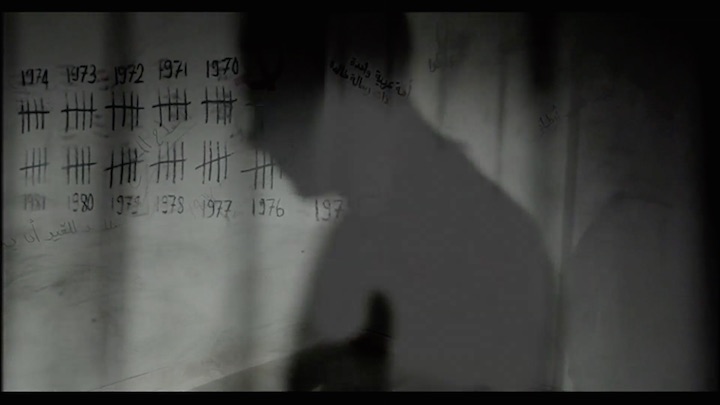AHMAD ADNAN AL-RAMHY
BEYOND THE WALLS
Film Director

Prison is a disturbingly common experience for Palestinians. Around one-fifth of the population has at one time or another been imprisoned since the occupation began. Thousands of Palestinians have been held under "administrative detention', without being charged or even told what crimes they are suspected of having committed.
In jail, Palestinian prisoners live in appalling conditions and are subjected to harsh treatment. Human rights groups have documented various forms of physical and psychological abuse: arbitrary beatings, excessive use of solitary confinement and the denial of family visits. The UN has concluded some techniques used by the Israeli Shin Bet (General Security Service) during prisoner interrogation constitute torture.
In jail, Palestinian prisoners dream of simple pleasures: opening a door, jumping on a bed, or watching the sunrise. In reality, they live in dark, crowded cells. Every aspect of their existence is governed by strict routine. Denied their physical liberty, they devote their time to expanding their minds.
Even that has been a struggle; Palestinian prisoners were initially denied pencils and paper. Books were also banned. After a series of prison protests, inmates were granted access to pens, pencils, paper, books, newspapers and monitored radio broadcasting.
Still, there were limits. Israeli authorities only allowed approved texts in the library. Many of the books arrived in such poor condition that prisoners had to piece them back together with tape.
Over the years, Israel has freed a number of Palestinians in prisoner exchanges or political deals. Palestinians view the release of prisoners as a victory for the national cause. Once freed, Palestinian prisoners typically receive a hero’s welcome.
But privately, many ex-prisoners struggle with the trauma resulting from years – sometimes decades – spent behind bars. They feel out of place with the rest of society, having missed out on life’s milestones. “Their emotions have remained the same from when they were young,” said Tereza Halasa, who was jailed for 12 years before being released. “Their thinking developed through reading, but their emotions didn’t develop,” she said.
Today, thousands of Palestinians remain in Israeli jails. Hundreds are serving life sentences. Dozens are being held under 'administrative detention'. Their fate is closely intertwined with that of Palestine. Their stories are a stark reminder of the cost of resisting Israeli oppression.
WATCH THE FILM
DIRECTED BY
AHMAD ADNAN AL-RAMHY
DIRECTOR OF PHOTOGRAPHY
ABDULLAH AL-RAMHY & SAMER AL-NIMRY
EDITOR
IBRAHIM AL-TAANY
PRODUCTION HOUSE
ZENDBIA, JORDAN
COMMISSIONING SENIOR PRODUCER
RAWAN DAMEN
PRODUCTION YEAR
2012
REVERSIONED BY AL JAZEERA WORLD TO ENGLISH – 2012
COPYRIGHT © ALL RIGHTS RESERVED FOR AL JAZEERA
RETURN TO TOP